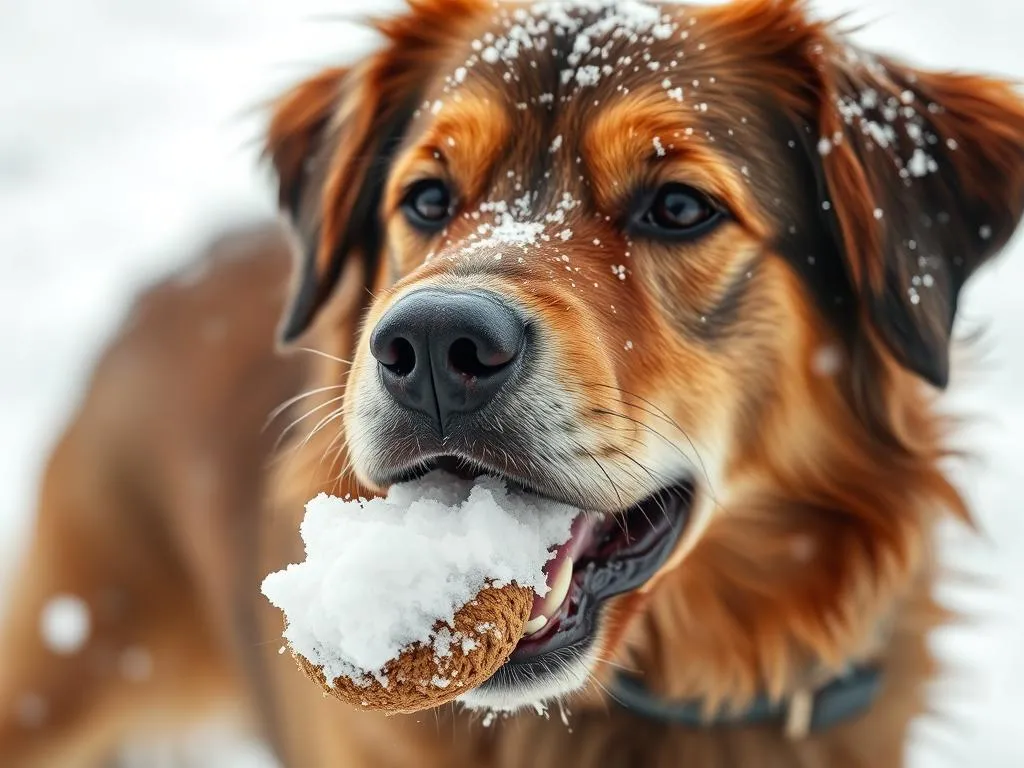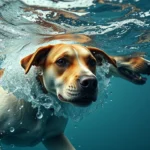
Introduction
Dog health care is a crucial aspect of responsible pet ownership, encompassing everything from nutrition and exercise to understanding behavioral quirks. One such behavior that often raises questions among dog owners is: why do dogs eat snow? Understanding why your furry friend engages in this seemingly odd habit can provide valuable insights into their health and well-being.
The implications of this behavior can range from harmless curiosity to potential health risks, making it essential for dog owners to be well-informed. In this article, we will explore the motivations behind this behavior, its health implications, and how you can manage it effectively.
Understanding Canine Behavior
Natural Instincts
Dogs are instinctual creatures, and their behaviors often reflect their evolutionary background. As descendants of wolves, they have retained many natural instincts that drive their exploration of the environment. This exploration often includes sniffing, chewing, and sometimes eating non-food items. Dogs experience their world primarily through their senses, particularly taste and smell, which can lead them to consume snow when it blankets the ground.
Common Behaviors in Dogs
It’s not uncommon for dogs to chew, lick, or eat various non-food items. This behavior is often amplified during seasonal changes when snow is present. The cold weather and the presence of snow can trigger unique behaviors in dogs as they adapt to their environment. Understanding these common behaviors can help owners respond appropriately and ensure their dog’s health and safety.
Reasons Dogs Eat Snow
Curiosity and Exploration
Dogs are natural explorers, and their curious nature drives them to investigate everything around them. Snow, with its unique texture and temperature, provides an intriguing sensory experience. When they encounter snow, dogs may chew or eat it simply out of curiosity. They may find the cold sensation enjoyable, or they may be intrigued by the scent trails left by other animals.
Thirst and Hydration
Another reason dogs might indulge in eating snow is due to thirst. Snow can serve as a source of moisture, especially during winter months when water sources may be frozen. While snow can provide hydration, it’s essential to ensure that your dog has access to fresh water, as eating snow alone might not meet their hydration needs.
Nutritional Needs
In some cases, dogs may be attracted to snow due to potential mineral deficiencies. Snow can sometimes carry minerals or trace elements that dogs instinctively seek out. If your dog is consuming significant amounts of snow, it may be worth assessing their diet to ensure they are receiving all the necessary nutrients.
Temperature Regulation
Dogs have unique ways of managing their body temperature. Eating snow may help them cool down, especially after vigorous play or exercise. Alternatively, the act of chewing on snow can also serve as a way to regulate their body temperature in warmer winter months. Understanding this behavior can help owners provide a comfortable environment for their pets.
The Health Implications of Eating Snow
Potential Risks
While eating snow might seem benign, it can pose several risks to your dog’s health. Contaminants often found in snow, such as chemicals from road treatments, debris, or bacteria, can be harmful. It’s crucial to be aware of where your dog is eating snow and the potential risks involved.
One specific concern is the infamous “yellow snow,” which may contain urine. Consuming snow contaminated with urine can lead to gastrointestinal issues and expose your dog to harmful pathogens. Always supervise your dog during playtime in snowy areas to minimize these risks.
Digestive Concerns
Consuming large quantities of snow can lead to digestive issues in dogs. While the occasional bite of snow may not cause harm, excessive amounts can lead to gastrointestinal distress. Signs of such distress may include vomiting, diarrhea, or lethargy. If you notice any of these symptoms following your dog’s snow consumption, it is advisable to consult a veterinarian.
Allergies and Sensitivities
Some dogs may have allergies or sensitivities to environmental impurities found in snow. These impurities can cause allergic reactions, leading to symptoms such as itching, redness, or gastrointestinal upset. If your dog shows signs of an allergic reaction after consuming snow, it’s essential to consult your veterinarian for professional guidance.
Managing Your Dog’s Behavior
Training Techniques
If your dog has developed a habit of eating snow that concerns you, there are training techniques you can use to redirect this behavior. Positive reinforcement is an effective method; reward your dog for engaging in alternative behaviors instead of eating snow. Teaching commands like “leave it” can help discourage unwanted behaviors while reinforcing good habits.
Providing Alternatives
Offering safe alternatives for chewing can also help manage your dog’s behavior. Chew toys, bones, or other dog-approved snacks can keep your dog occupied and reduce their interest in eating snow. Additionally, ensuring your dog has adequate hydration during winter months can diminish their urge to eat snow as a source of moisture.
Monitoring Outdoor Time
Supervising your dog during outdoor play in snowy environments is vital. This allows you to recognize signs of overindulgence or distress. If you notice your dog frequently eating snow, consider limiting their time in snowy areas and providing structured playtime to keep them engaged without resorting to snow consumption.
When to Seek Veterinary Advice
Signs of Health Issues
Be vigilant for any signs of health issues that may arise after your dog eats snow. Red flags include persistent vomiting, diarrhea, lethargy, or changes in behavior. If you observe any of these symptoms, it’s crucial to consult your veterinarian promptly to rule out any underlying health conditions.
Regular Health Check-ups
Routine veterinary visits are essential for maintaining your dog’s overall health. Discussing seasonal care and behavioral changes with your vet can provide you with tailored advice on how to manage your dog’s behavior effectively. Regular check-ups can also help identify any nutritional deficiencies that may lead to unusual eating habits.
Conclusion
Understanding why dogs eat snow is vital for promoting healthy behaviors in your canine companion. From curiosity and hydration needs to potential health risks, there are many factors at play. Being an observant and proactive dog owner will help ensure your furry friend remains healthy and happy during the winter months.
By staying informed about your dog’s behavior and health needs, you can create a safe and nurturing environment for them to thrive. Remember, your dog relies on you to navigate the complexities of their health care, so stay vigilant and engaged in their well-being.









